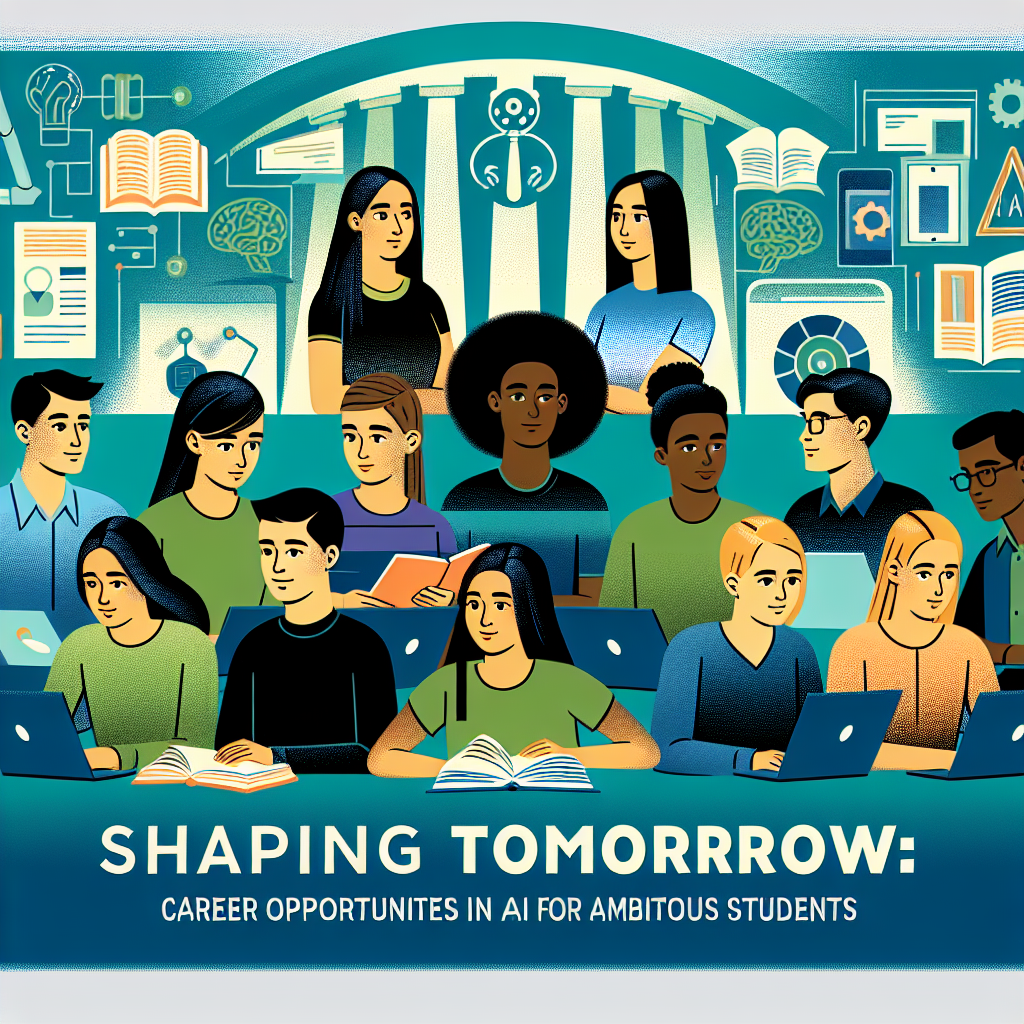In recent times, artificial intelligence (AI) has evolved from a specialized domain into one of the most impactful technologies of our era. By transforming sectors such as healthcare and finance and enhancing daily life through innovative smart devices, AI’s reach is extensive. With ongoing technological advancements, the need for skilled AI professionals is soaring. This opens up exciting career opportunities for aspiring students in a vibrant and evolving field. Below, we explore various career paths in AI and detail how students can get ready for them.
Comprehending AI and Its Uses
AI includes a variety of technologies, such as machine learning, natural language processing, computer vision, and robotics. These technologies find applications in diverse fields:
- Healthcare: AI is utilized for early disease identification, customized treatment options, and streamlining administrative tasks.
- Finance: Algorithms forecast market trends, detect fraudulent activities, and offer personalized financial guidance.
- Transportation: Autonomous vehicles and intelligent traffic systems heavily depend on AI capabilities.
- Entertainment: AI-driven recommendations for content in streaming services enhance user experiences.
Each of these domains opens up numerous career pathways for students with the appropriate skill sets.
Career Opportunities in AI
-
Machine Learning Engineer: These specialists create and implement algorithms that enable computers to learn from data and make predictions. A solid grounding in mathematics, statistics, and programming languages like Python is crucial.
-
Data Scientist: Data scientists delve into extensive datasets to derive valuable insights. They apply statistical techniques and machine learning to guide decision-making processes. Skills in data visualization and programming are vital.
-
AI Research Scientist: Research scientists focus on developing innovative AI technologies and methodologies. This role generally requires an advanced degree (Master’s or PhD) alongside a thorough understanding of theoretical AI concepts.
-
Robotics Engineer: Robotics engineers design and construct robots, often incorporating AI for improved functionality. Their work spans various industries, from manufacturing to healthcare, emphasizing both hardware and software integration.
- AI Product Manager: These professionals act as a liaison between technical teams and business strategies. They play a crucial role in shaping AI product direction to align with market requirements.
Essential Skills for AI Careers
To thrive in AI professions, the following skills are imperative:
- Programming Languages: Expertise in Python, R, Java, or C++ is essential for developing AI solutions.
- Mathematical and Statistical Proficiency: A robust understanding of algorithms, calculus, and linear algebra is fundamental.
- Data Analysis: Skills in managing and analyzing data using tools like SQL, Tableau, and Pandas are advantageous.
- Problem-Solving Abilities: Navigating complex challenges is vital for AI development.
- Soft Skills: Teamwork, effective communication, and adaptability are equally important for success in collaborative and rapidly changing environments.
Preparing for a Career in AI
Educational Pathways
-
Bachelor’s Degree: A degree in fields like computer science, data science, or related areas lays a strong foundation. Relevant courses should include programming, algorithms, and statistics.
-
Internships: Practical experience gained through internships is invaluable. Students should pursue placements in tech firms, research institutions, or startups focused on AI.
-
Online Courses and Certifications: Learning platforms such as Coursera, edX, and Udacity offer specialized courses in AI and machine learning. Certifications can enhance resumes and showcase expertise.
- Graduate Studies: Advanced roles, especially in research or academia, can benefit from pursuing a Master’s or Ph.D.
Networking and Professional Development
Engaging with AI-related professional organizations, attending conferences, and participating in hackathons can provide students with valuable networks and insight into industry trends. Involvement with online AI communities through forums and social media can also yield meaningful connections and knowledge.
Keeping Updated
The AI field is continuously evolving. Aspiring professionals should stay informed about the latest advancements and innovations by following academic journals, blogs, and industry leaders on social media platforms.
Conclusion
The realm of AI presents a plethora of career opportunities and holds the potential to transform our world in ways we have yet to fully comprehend. For students eager to make an impact in this exciting domain, a career in AI necessitates not only technical expertise but also a passion for innovation and a commitment to ongoing learning. As they brace for the future, the possibilities are truly boundless. By embracing these challenges, students can place themselves at the forefront of technological progress and play a crucial role in shaping what lies ahead.

